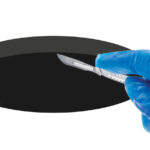One day GPs will learn that perhaps if they charged what they’re worth, they might feel better about doing their work.
With weekly complaints about general practice from patients who see me for the sub-speciality work that I do, as well as colleagues wondering if they ought to leave general practice and even medicine, I have to ask – which came first? Demoralisation and burnout, or our apparent unwillingness to charge what we’re worth?
Once burnout enters the room, it can be hard to make sense of any of it. Exhaustion gets converted into apathy, a feeling of despair that life could ever look any better.
On the weekend, I spoke with a colleague who was talking about her decision to leave general practice for the foreseeable future and the associated guilt that comes with that decision.
This morning, I woke to a text message from a colleague (and friend) to whom I had referred a patient. The patient booked a 30-minute appointment, which blew out to 60 minutes, and the patient told me, when I saw her last week, that she was charged a paltry gap of $20.
I told the patient: “You should have paid much more than that – I’m trying to convince my friend to raise her gaps.” She agreed.
To my friend and colleague, I suggested staggering her fees in time for July:
- gap fee of $X for up to 15 minutes, Level B;
- gap fee of $Y for 15-19 minutes, Level B;
- gap fee of $Z for 20-30 minutes, Level C;
- gap fee of $A for 30-40 minutes, Level C;
- gap fee of $B for 40-50 minutes, Level D;
- gap fee of $C for 50-60 minutes, Level D.
“I’m too burnout out Imaan, I’m a work in progress,” she said.
But I have to ask, could it be that charging appropriately for your time and skills, for which patients are clearly happy to pay, may be the way out of that sense of demoralisation?
It is also why I regularly get asked if I do any general practice work at all, and “when you do let me know, I’ll be in the queue with my money in hand!”
Why, I wonder, do we have this reticence to charge appropriately for the time we work, to provide excellent care, to dig ourselves out of the hole we find ourselves in, with patients who want to and can afford to pay.
I was so disheartened by it, I did a 12-minute live on my social media feed last week, encouraging my fellow GPs to charge appropriately and to provide excellent care.
For too long in health, bolstered by decent rebates, it was ingrained in us that “to serve, it would be dishonest to charge any money”, but this is not true. We did not work for free then, nor should we now. As one of my money mentors says, “I serve, so I deserve”, and this is true.
Feeling undervalued or even unvalued has such a negative impact on our psyche that we end up feeling disgruntled and resentful at best, and burnt-out to the point of considering leaving, at worst.
Who will that ultimately serve, and how?
There is also a sense of learned helplessness among colleagues who are this burnt-out. They cannot see a way out, even if it is pointed out to them, because they are exhausted by the never-ending list of “to-dos” and have lost sight of the pathway that will get them out fastest, and back to feeling some semblance of normalcy.
My job, as I see it, is to keep nudging and nagging my colleagues knowing they’ll come back with “yes but”, as my psychotherapy patients do. But maybe if I keep saying it over and over, like our patients who smoke, one day something will click.
Will it occur in time? That remains to be seen.





